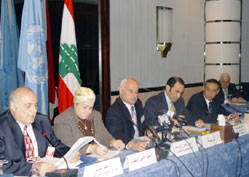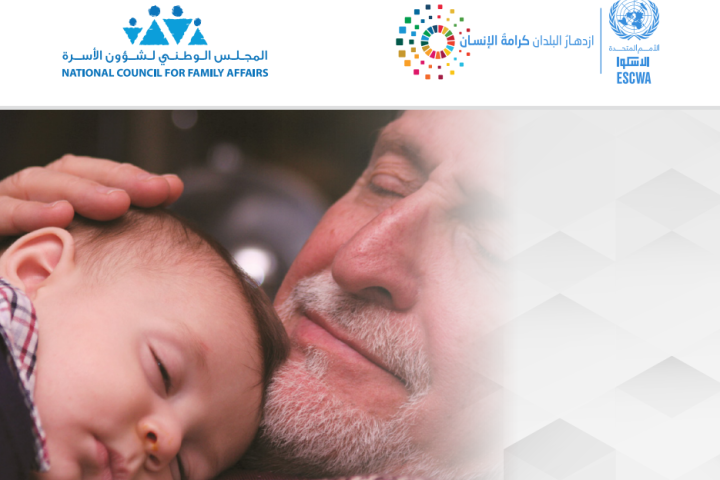The Fifth Session of the UN-ESCWA Technical Committee on Liberalization of Foreign Trade and Economic Globalization convened in Beirut from 24 to 26 April 2007. The meetings were attended by representatives of the ministries of trade and finance in member countries, in addition to representatives of relevant international and regional organizations as observers.
The session aimed to provide a forum for the discussion of developments in the new world trade system and the challenges faced by the countries of the region because of the current World Trade Organization (WTO) trade negotiations; and to allow member countries to consider the progress achieved in the negotiations of the Doha Development Agenda issues and discuss possible alternatives, given the breakdown in WTO negotiations. A further aim of the session was to bring to the attention of member countries the most important Monterrey Consensus-related applications in the UN-ESCWA region, and involve those countries in identifying programme priorities as part of UN-ESCWA's proposed strategic framework for the 2008-2009 biennium in the field of trade and WTO-related issues and, in particular, foreign direct investment and capital markets in the UN-ESCWA region.
The agenda of the session also included a review of action taken in the field of liberalization of foreign trade and economic globalization since the fourth session of the Committee through: following up on the implementation of the recommendations made by the fourth session; monitoring the progress made in implementing liberalization of foreign trade and economic globalization-related activities since the fourth session of the Committee; and reviewing UN-ESCWA advisory services and technical cooperation activities.
At the conclusion of the session, participants came up with several recommendations addressed both to governments and UN-ESCWA. Those addressed to the governments called for the nomination of focal points to follow-up on issues raised by the technical committee. Member countries were also requested to supply UN-ESCWA with the names of experts in international trade, financing for development, and trade negotiations in order to establish a database of experts in these fields. Participants also called upon member countries to provide UN-ESCWA with continuous updates on new legislations and agreements related to trade and financing for development. Member countries were also encouraged to voice their reactions, opinions and contributions to both the webpage on International Trade Issues and the Quarterly-published Trade Issues Bulletin issued by UN-ESCWA. In addition, participants addressed the issue of financial support that the governments could extend to UN-ESCWA in implementing its programmes and activities.
With regard to the recommendations addressed to UN-ESCWA, participants sought the approval for changing the name of the technical committee to become "Technical Committee on Liberalization of Foreign Trade, Economic Globalization and Financing for Development in the Countries of the UN-ESCWA Region". It was also agreed that the committee will convene every two years preceded by two expert group meetings, one on trade and one on financing for development, to be held with no additional financial implications. Participants approved the programme of work for the biennium 2008-2009, requesting UN-ESCWA to continue the organization of regular coordination meetings for member countries on issues related to the WTO negotiations and the Monterey Consensus. UN-ESCWA was also called upon to increase its activities in areas of interest to member countries such as single window, regional and bilateral agreements, trade in services, competitiveness and taxation, provided that the necessary funds are made available.
It is worth noting that the Technical Committee on Liberalization of Foreign Trade and Economic Globalization in the Countries of the UN-ESCWA Region was established pursuant to the Commission's resolution 214 (XIX) of 7 May 1997, and the Economic and Social Council resolution 1997/12 of 18 July 1997. The aim of establishing such a committee was to: contribute to the identification of concerns and priorities of the UN-ESCWA member countries with respect to multilateral trade agreements and negotiations; monitor developments in global trade negotiations and the establishment of economic and trade blocs, and coordinate the positions of Committee member countries in that regard; cooperate with the UN-ESCWA secretariat in formulating programmes to assist the countries of the region in designing appropriate policies for economic development at the national and regional levels, with a view to extending the benefits to those countries of trends in liberalization of foreign trade and economic globalization; and formulate programmes for training, exchange of expertise and research to be taken jointly by the countries of the region in cooperation with other regional and international organizations.




